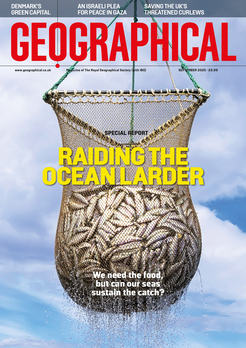
Environmental factors such as smoking, sleeping and well-being are ten times more likely to cause chronic illnesses than genetics alone
By
New research published in Nature Medicine has shown how our environment plays a much greater role in the risk of chronic disease compared to genes alone.
Using artificial intelligence and data from more than 500,000 people in the UK, exposome – the sum of all environmental factors around a human – was responsible for 10 times more variation in mortality risk than genetic predisposition.
Enjoying this article? Check out our related reads:
The study also found that smoking, socioeconomic factors, living conditions, physical activity, sleep, early life factors and psychological well-being had the strongest associations between risk of death and biological ageing. As researchers explain, particular environmental factors like these can trigger pathways which contribute towards disease and accelerate ageing.
Now, it is hoped that such findings can help to combat what researchers dub the ‘chronic disease’ epidemic hitting nations around the world.
The publication comes ahead of the Exposome Moonshot Forum, held in Washington DC later this spring, where a scientific endeavour will be launched to see how environmental factors impact humans from birth to death.
What is a chronic disease – and where are they most common?
Chronic diseases are those which last for more than three months or longer, and often get worse over time. And as populations increase, according to the OECD, the prevalence of such conditions will only rise, placing more pressure on healthcare systems.
That’s why researchers from the latest study remain positive that by shedding light on how the environment interferes with human health, more healthcare models can shift their policies into preventative methods and take swift action before they become overloaded.

The most common types of chronic diseases include cancer, heart disease, diabetes, arthritis and stroke. In 2021, 18 million people died from chronic diseases before the age of 70 – with 82 per cent of these premature deaths occurring in low and middle-income countries.
Of all chronic disease deaths, 73 per cent are in low and middle-income countries.
In particular, Mexico, Türkiye, Chile, the US and Spain have the highest rates of diabetes, with more than 10 per cent of the entire adult population living with the disease. Outside of OECD countries, China, Indonesia, and South Africa also report high rates of diabetes.
According to the WHO, smoking, physical inactivity, harmful use of alcohol, unhealthy diets and air pollution are all factors which increase the risk of dying from a chronic disease, further supporting the recent study’s findings.




